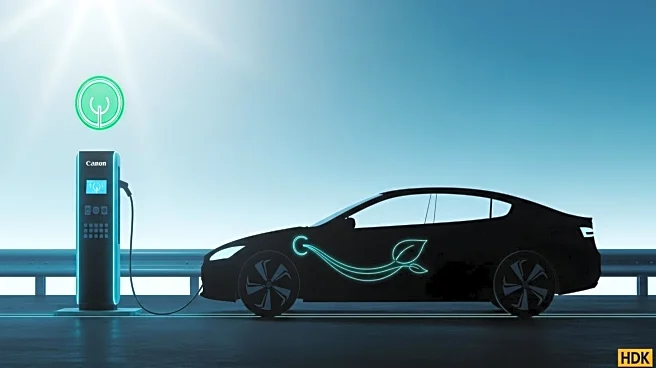What's Happening?
Tesla has launched new 'affordable' versions of its Model Y SUV and Model 3 sedan in the United States, with starting prices of $39,990 and $36,990, respectively. CEO Elon Musk has positioned these models as a strategy to attract a broader range of buyers. However, the pricing has been met with skepticism, as some believe it remains too high to significantly expand Tesla's market reach. The new models feature a reduced battery size and offer a driving range of over 300 miles, but they lack some premium features found in higher trims. The introduction comes as Tesla faces declining sales and increased competition, particularly from European and Chinese markets. The vehicles are available for order now, with deliveries expected between December 2025 and January 2026.
Why It's Important?
The introduction of these 'affordable' models is crucial for Tesla as it seeks to maintain its competitive edge in the electric vehicle market. The pricing strategy aims to counteract the loss of a $7,500 U.S. tax credit and to compete with lower-cost models from other manufacturers like Chevrolet and Hyundai. However, the modest price reduction has raised concerns among investors and analysts about its effectiveness in driving significant new demand. The move is seen as a test of Tesla's ability to balance its brand image of innovation with the need to appeal to cost-conscious consumers. The outcome could influence Tesla's market position and financial performance, especially as it faces pressure from lower-cost competitors globally.
What's Next?
Tesla's pricing strategy will likely prompt reactions from competitors, who may adjust their pricing or feature offerings in response. The market will closely watch how these new models perform in terms of sales, particularly in the context of the upcoming competition from other affordable electric vehicles. Additionally, Tesla's focus on artificial intelligence and future innovations like robotaxis may shift as the company evaluates the success of its current product lineup. The broader implications for the electric vehicle market include potential shifts in consumer expectations and pricing standards.
Beyond the Headlines
The launch of these models highlights a broader trend in the automotive industry towards making electric vehicles more accessible to the average consumer. It also underscores the challenges Tesla faces in maintaining its innovative edge while adapting to market demands. The company's strategic decisions in pricing and product development could have long-term impacts on its brand perception and market share. Furthermore, the move reflects the ongoing evolution of the electric vehicle market, where affordability and technological advancement must be balanced to achieve widespread adoption.












